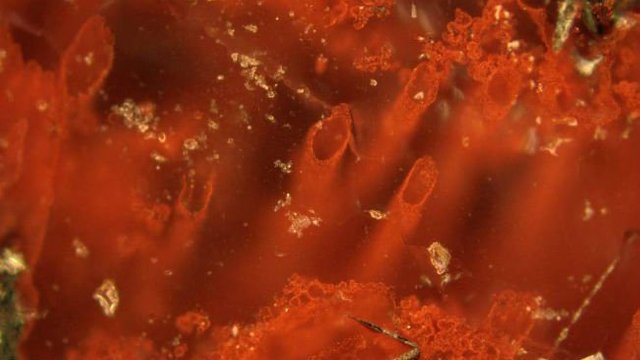They uncover microfossils that could be 4,300 million years old and that can serve to study the possible existence of life on Mars
In the Nuvvuagittuq belt, a remote area of Quebec, scientists have unearthed microfossils that could be the earliest known sign of life on earth.

A discovery that brings us closer to the origin of life.
In a piece of rock, they have found tubular and filamentous structures that would be bacteria that lived 4 billion years ago (between 3.770 and 4.280 million years, according to calculations of the researchers). They would have appeared on Earth only 200 years after our planet formed.
Microbial life is believed to have emerged near hydrothermal vents, hot mineral-rich waters because of the emanation of iron from Earth's mantle through cracks in the seabed. The rocks in which the discovery took place would have been part of that seabed millions of years ago, before the movement of the tectonic plates brought them to the surface.
"Our discovery supports the idea that life arose from the hot vents of the sea floor shortly after planet Earth formed.This rapid appearance of life on Earth fits with other recent evidence of tombs dating to around 3,700 Millions of years ago that were shaped by microorganisms, "says Matthew Dodd, a member of the British team at University College London in an article published in Nature.

The hematite tubes in the hydrothermal vents
The earliest microfossils to date have been found in Western Australia and were about 3.5 billion years old. The researchers argue that this new finding has paperwork to be the definitive one, as it is unlikely to be able to retreat even further in time. The Earth, in its beginnings, was a hostile place with meteorites constantly impacting on the surface, something that made impossible any form of life.
To verify that the structures discovered in the rocks represented non-biological bacteria and non-minerals, the scientists were subjected to carbon-12 tests. The evidence seems to confirm with high probability that it is the remains of living microorganisms.

The value of these microfossils is not only found in that we know that they were the beginning of everything. They also help search for life on other planets. The conditions under which these microorganisms were developed could be the same as those on Mars when the red planet had oceans or liquid water lagoons on its surface.
"Our prediction, therefore, is that there will be evidence of life on Mars that will date back 4,000 million years. Otherwise, Earth will be a very special exception," Dodd concludes.
The most interesting thing I have read on Steemit today!
Downvoting a post can decrease pending rewards and make it less visible. Common reasons:
Submit
Warning! This user is on my black list, likely as a known plagiarist, spammer or ID thief. Please be cautious with this post!
To get off this list, please chat with us in the #steemitabuse-appeals channel in steemit.chat.
Downvoting a post can decrease pending rewards and make it less visible. Common reasons:
Submit
this is my own post in spanish and you keep saying is plagiarism this is my
post i tranlate and put it here
Downvoting a post can decrease pending rewards and make it less visible. Common reasons:
Submit